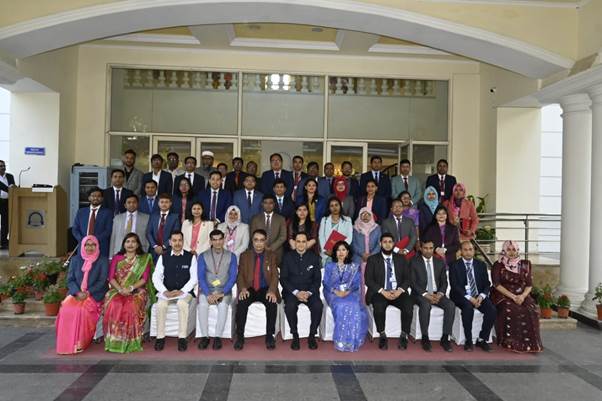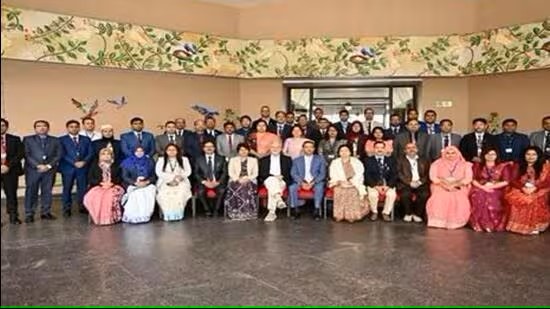Imagine a gathering where young Bangladeshi civil servants delve into the complexities of land administration, explore the transformative power of digital governance, and grapple with the intricacies of crafting effective public policy. This wasn’t just a hypothetical scenario; it was the reality of the 69th and 70th batches of the Capacity Building Program (CBP) held in India for Bangladeshi civil servants. Organized by the National Centre for Good Governance (NCGG) in partnership with the Ministry of External Affairs (MEA), this two-week program marked a significant milestone in the ongoing collaboration between India and Bangladesh, aiming to empower future leaders and bolster governance structures in the neighbouring nation.
For Sub-divisional Officers (SDOs), the bedrock of Bangladesh’s land administration system, the program offered an in

valuable opportunity to refine their expertise. They delved into efficient revenue administration practices, ensuring the smooth functioning of a sector critical to the lives and livelihoods of millions. Additionally, the focus on improved justice delivery highlighted the importance of upholding fairness and transparency in land-related disputes, fostering trust and stability within the system.
The program recognized the transformative potential of digital technologies in governance. Deputy Secretaries from the Central Secretariat received in-depth training on adopting e-Office, a crucial step towards streamlining bureaucratic processes and enhancing efficiency. The emphasis on bridging the citizen-government gap through technology resonated deeply, encouraging participants to explore innovative solutions for citizen engagement and empowerment.
The CBP wasn’t merely a technical skills workshop; it was a comprehensive learning experience. Participants explored diverse topics relevant to effective governance, including navigating the ever-evolving landscape of public policy, mastering the art of leadership and communication, and understanding the challenges and opportunities presented by disaster management. Case studies on India’s initiatives like the Swamitva scheme and Government e-Marketplace (GeM) offered valuable insights into practical implementations, while exposure visits to local districts provided firsthand experiences of on-the-ground realities.
This program wasn’t a one-off event; it represented a continuation of a successful partnership. With the completion of the 69th and 70th batches, NCGG has now trained an impressive 2,500 Bangladeshi civil servants, solidifying its commitment to capacity building in the region. Furthermore, the MoU signed with the Bangladesh government aims to equip an additional 1,800 officials by 2025, demonstrating the program’s expanding reach and impact.
The CBP transcends its immediate impact on Bangladesh. It serves as a model for collaborative capacity-building initiatives, fostering knowledge exchange and mutual understanding between nations. NCGG’s experience in training civil servants from 17 countries showcases its expertise and commitment to supporting good governance practices globally.
The 69th and 70th batches of the CBP represent a significant step forward in strengthening governance in Bangladesh. By equipping young civil servants with the knowledge, skills, and perspectives needed to navigate the complexities of their roles, the program empowers them to become effective leaders and agents of positive change. As the program expands its reach and impact, one can envision a brighter future for Bangladesh, where efficient administration, innovative solutions, and citizen-centric governance pave the way for sustainable development and progress.




